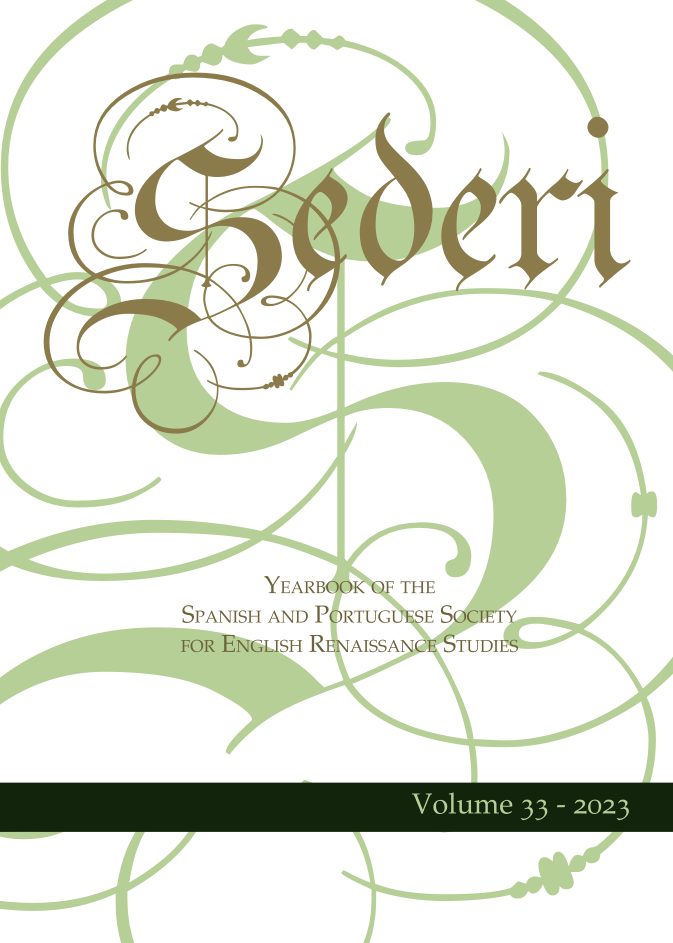Pursuing contentment and liberation in the Forest of Arden
Hindu and Buddhist resonances in As You Like It
DOI:
https://doi.org/10.34136/sederi.2023.3Keywords:
As You Like It, Buddhism, contentment, Hinduism, liberation, refuge, ShakespeareAbstract
This essay approaches Shakespeare’s As You Like It through the ancient wisdom traditions of Hinduism and Buddhism. Focusing on a number of influential classic Indian texts, this study considers how distinctive features of Eastern spirituality resonate with Shakespeare’s depiction of the Forest of Arden as a refuge where contentment can be fostered and liberation pursued as life’s ultimate goal. Shakespeare’s pastoral comedy dramatizes how virtues that lead to liberation are facilitated within the eco-religious space of Arden where the threefold Hindu concept of world forest is embodied. Such an ecumenical approach invites readers to contemplate what wisdom traditions beyond the Abrahamic religions can contribute to Shakespeare’s religious afterlives.
Downloads
Downloads
Published
Issue
Section
License
The copyright holder of the published contributions is SEDERI.The hardcopy and an open-access version of the journal will be published simultaneously. The issues will be available online in the SEDERI website (http://www.sederi.org/yearbook/) and other repositories that have signed an agreement with SEDERI.
The authors who publish with this journal agree to the following terms:
a) SEDERI retains copyright of the essay.
b) If the author wishes to republish or rewrite the essay for another journal, or include the essay published in SEDERI in their personal repositories, or in any other way, they should contact the editors to obtain permission to do so. This will entail citing SEDERI as the original source and sending the editors a copy of the new version, or the link to the website, in case of online publishing.
The author(s) hereby warrant(s) that:
a) The essay submitted for publication is an original creation and does not infringe any copyright or property right of another journal, author or publisher.
b) The essay submitted for publication has not been previously published, whole or in part, and is not being considered for publication elsewhere.
c) Written permission has been obtained for any material from other sources included in the essay submitted for publication.
Funding data
-
Ministerio de Ciencia e Innovación
Grant numbers PID2021-123341NB-I00




